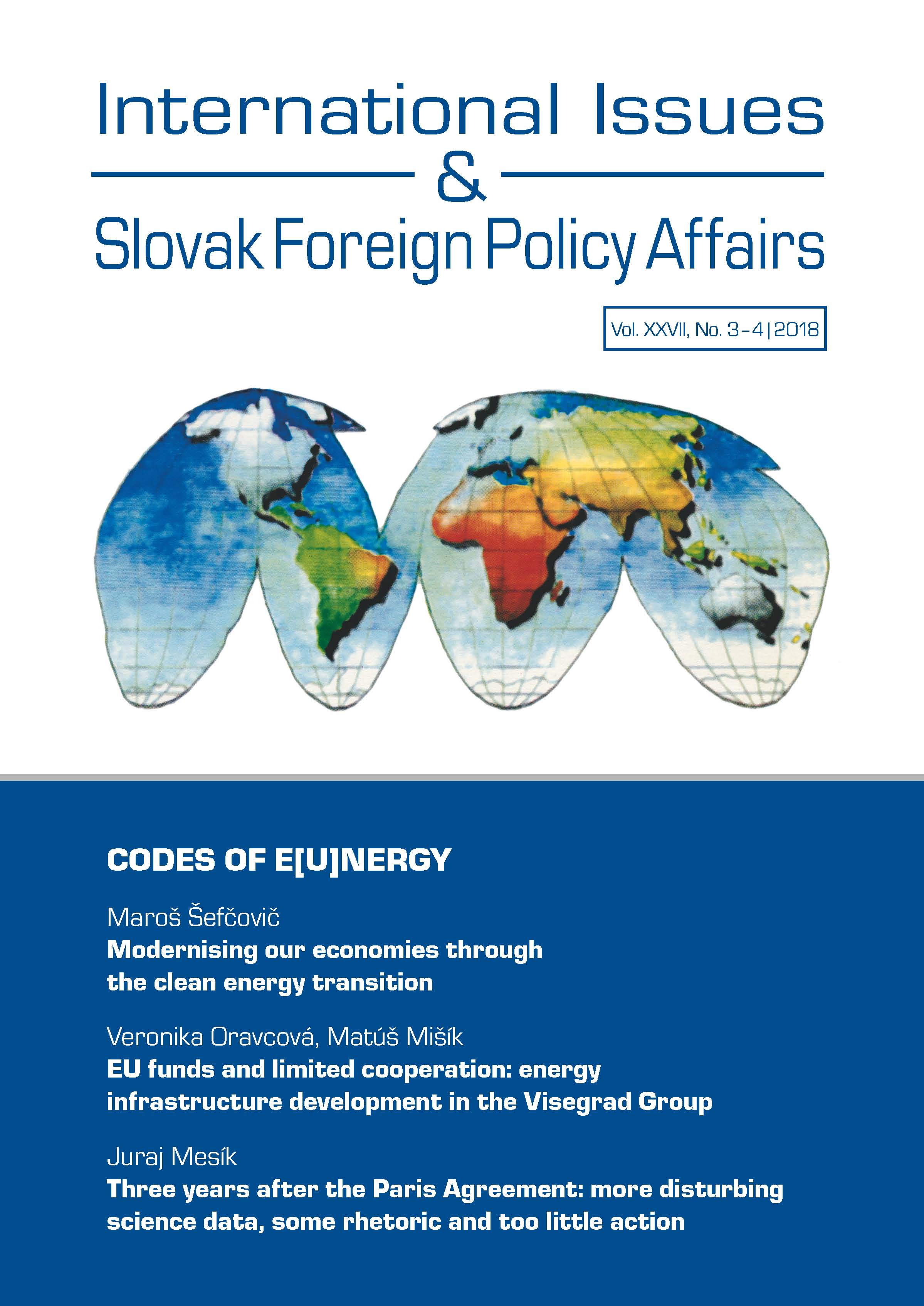Three years after the Paris Agreement: more disturbing science data, some rhetoric and too little action
Three years after the Paris Agreement: more disturbing science data, some rhetoric and too little action
Author(s): Juraj MesíkSubject(s): Energy and Environmental Studies
Published by: Research Center of the Slovak Foreign Policy Association (RC SFPA)
Keywords: Paris Agreement;global warming
Summary/Abstract: The Global Warming of 1.5°C report published by the Intergovernmental Panel on Climate Change in October 2018 concludes that limiting the average global temperature increase to below +1.5°C may still be doable, but would require “rapid and far-reaching transitions in energy, land, urban and infrastructure, and industrial systems. These systems transitions are unprecedented in terms of scale, …, and imply deep emissions reductions in all sectors.” More specifically: “In model pathways with no or limited overshoot of 1.5°C, global net anthropogenic CO2 emissions decline by about 45 per cent from 2010 levels by 2030 (40–60 per cent interquartile range), reaching net zero around 2050...” Despite some of the warmest years on record and devastating climate-related disasters, governments around the world do not appear to be embracing the challenge. The case of Trump’s America illustrates the psychological, educational, ideological and vested interests underpinning this failure. Europe, despite its generally encoura ging rhetoric, is not on track to achieve the below +2°C future and continues to fail in many directions. Of particular significance is Europe’s failure to bring together its climate and security strategies in one comprehensive package aimed at speedy and deep cuts in financial flows from Europe to Putin’s Russia.
Journal: International Issues & Slovak Foreign Policy Affairs
- Issue Year: XXVII/2018
- Issue No: 3-4
- Page Range: 69-94
- Page Count: 25
- Language: English

